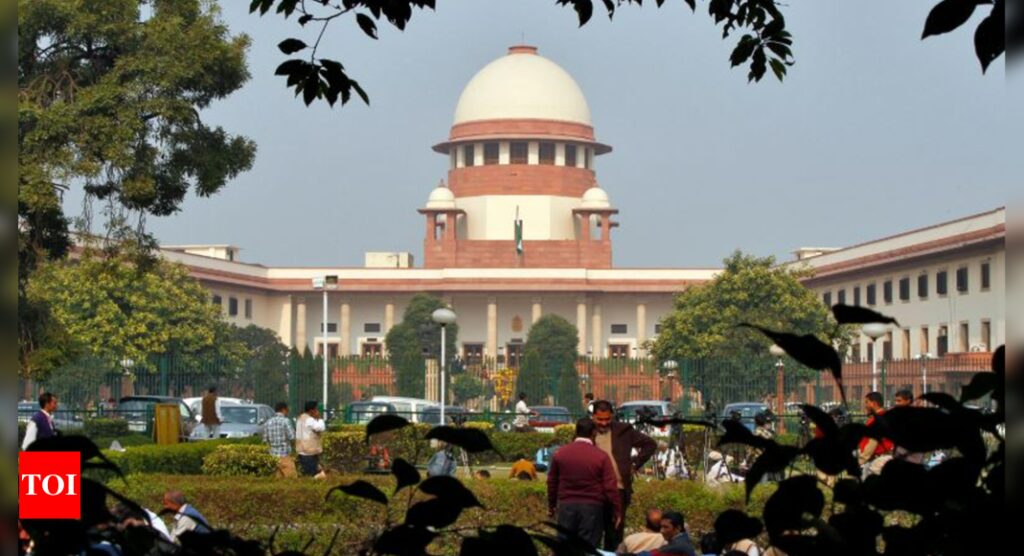Supreme Court to examine validity of two PMLA provisions | India News – Times of India

The petitioner, MP leader of the opposition Govind Singh, alleged that the unbridled power given to the agency was being misused to silence opposition leaders across the country.
PMLA provisions allow roving and fishing expedition: Plea
Leader of the opposition in the Madhya Pradesh assembly and seven-time MLA, Govind Singh, has moved the apex court saying some of the provisions of the Prevention of Money Laundering Act, 2002 were violative of the fundamental rights of the accused.
Senior advocate Kapil Sibal and lawyer Sumeer Sodhi, appearing for the petitioner, told a bench of Justices Sanjay Kishan Kaul, Ahsanuddin Amanullah and Aravind Kumar that the apex court had last year upheld the validity of the provision but pleaded that the issue needed fresh examination. The petitioner alleged the issue has to be decided as the provisions permit “the ED to conduct a roving and fishing inquiry”.
They submitted the court should adjudicate whether an individual who is being called to join investigation under Section 50 of PMLA is entitled to be made aware as to whether s/he is being prima facie considered as a witness or as an accused, and also whether s/he should be told about the case for which s/he was being summoned.
“The legislature in its wisdom, while enacting the Indian Evidence Act, the Code of Criminal Procedure, incorporated the safeguard to ensure that the statement made during the course of investigation would not be an admissible piece of evidence in the trial of the case, whereas the said protection is not available under the provisions of the PMLA… The provisions of Section 50 and 63 are in direct contravention to the fundamental rights against self-incrimination enshrined under Article 20(3) of the Constitution, which is interlinked intrinsically with the right to a fair trial under Article 21,” the petition said.

01:06
Constitutional institutions used to suppress Opposition leaders’ voices: Deepender Hooda
The court, after a brief hearing, issued notice to the Centre and the ED, and asked them to file their responses within three weeks. The petitioner was granted two weeks thereafter to file a counter-response and the case was posted for further hearing in May.
“Section 50 of the Act not only enables the officers of the ED to record confession or incriminating statements, to be proved against the maker, but also, in fact, extends to legally mandating that such confession or incriminating statement be made under the threat of legal sanctions provided under Section 63 of the Act,” the petition said.
Section 50 of the PMLA empowers an ED officer to summon a person and record his statement. Section 63 says giving a false statement or not giving information is an offence.
“Even the copy of the ECIR is not supplied to the person being summoned, s/he cannot ascertain as to whether the questions posed to him/her are being posed in relation to the ECIR under investigation, the scheduled offences, or any other unrelated transaction,” the petition said.

03:08
Money Laundering case: Supreme Court rejects BRS leader K Kavitha’s plea against ED








